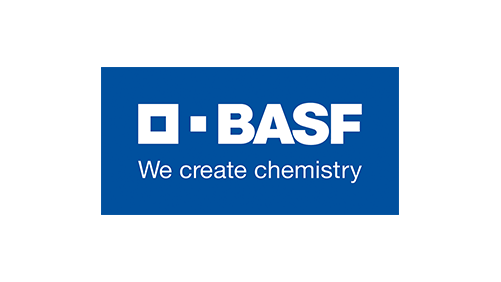BASF’s Smart Scientists: Interview with Pei-Ying Wu, protein scientist
It’s Valentine’s Day and many of us turn our thoughts to hearts and love. For Pei-Ying Wu, every day is about hearts. As a protein scientist, she supports BASF’s and Cargill’s joint biotechnology project on omega-3 producing canola. While the fatty acids have a favorable impact on human health and heart health in particular, they are a rare find in human nutrition. By supporting the regulatory approval of the enriched canola in different countries, Pei-Ying helps more hearts benefit from this innovation.
What is the omega-3 project about?
Omega-3 fatty acids are great to support human health. They are essential components of our cell membranes and are involved in supporting favorable lipid metabolism, immune function and skin health. Most importantly, they lower triglyceride levels – a type of fat in your blood – and reduce the risk of heart attacks.
Unfortunately, our body cannot synthesize the fatty acids. Microalgae are the main natural producer and fish accumulate omega-3 in their tissues over time as they ingest plankton that consumes microalgae. For human nutrition, fish is the main natural source of omega-3.
That’s where the omega-3 project comes in: we partnered with Cargill and used biotechnology methods to alter seeds so that the canola produces a healthier oil that contains eicosapentaenoic acid (EPA) and docosahexaenoic acid (DHA) – two types of omega-3s found in fish. The engineered crop provides a renewable, alternative source of omega-3s for aquaculture nutrition.
What is your role in this project as a regulatory scientist?
My work is all about data. I have my bachelor’s degree in Medical Technology from Chung Shan Medical College in Taiwan and my Ph.D. in Molecular Biophysics from Johns Hopkins University in Baltimore, Maryland. As a regulatory scientist, I step in at the very end of a product development and right before a new crop is launched to the market. Every country requires individual product information to approve a crop. Together with my team, I am responsible for generating data packages under regulation and help to submit them to regulatory agencies for approval. The data packages contain a full profile of the newly introduced proteins from the genetically modified crop, which includes the protein characterization, quantitation as well as safety data and studies.
What is so special about the project?
The omega-3 project is the most complex agricultural biotechnology product I have ever been involved in and it is a huge team effort: Hundreds of scientists from all around the globe have contributed enormously to this project to get us where we are.
It’s not easy to include omega-3 consistently in our daily diet. I’m proud of my contribution in making this essential component available in a crop. The canola produced EPA and DHA can be fed to fish via fish food and therefore provide sustainable nutrition for aquaculture as well. The joint project between Cargill and BASF demonstrates that canola can be a sustainable source for EPA and DHA. I feel very lucky to be part of this project, even though my contribution is rather tiny compared to the overall team effort.
Heart health is a focus area of your daily work. Is Valentine’s Day a special day for you?
I like Valentine’s Day because of the focus on our hearts. February is American Heart Month and there is a lot of chemistry that contributes to keeping hearts healthy. It’s important to raise awareness about heart disease and how people can prevent it. Several scientific studies prove how beneficial omega-3s are for a healthy heart and I am proud of contributing to alternative ways of providing these essential components for human and fish nutrition.
Personally, my Valentine’s Day is all about family – and my kids are my sweethearts!
Additional quote to highlight: “I love my job. One day, I may be a scientist in another area, but I have never considered doing something other than science.”
About the project
BASF and Cargill collaborated to provide an alternative source of long-chain omega-3 that could reduce the demand on the world’s fish population to improve its sustainability, while meeting consumers’ growing demand the health benefits of omega-3s.
BASF developed the technology to combine genetic materials from plants and algae with canola to produce a canola cultivar that’s rich in omega-3 fatty acids.
Cargill’s expertise in canola breeding and oil production, combined with its aquaculture business, allowed it to help realize the many benefits omega-3 canola would have for land and fish farmers, consumers, the wild fish population and our oceans.
Additional Links:
Cargill’s Latitude
BASF’s omega-3 solutions
For media inquiries and questions, please contact: katharina.meischen@basf.com.
